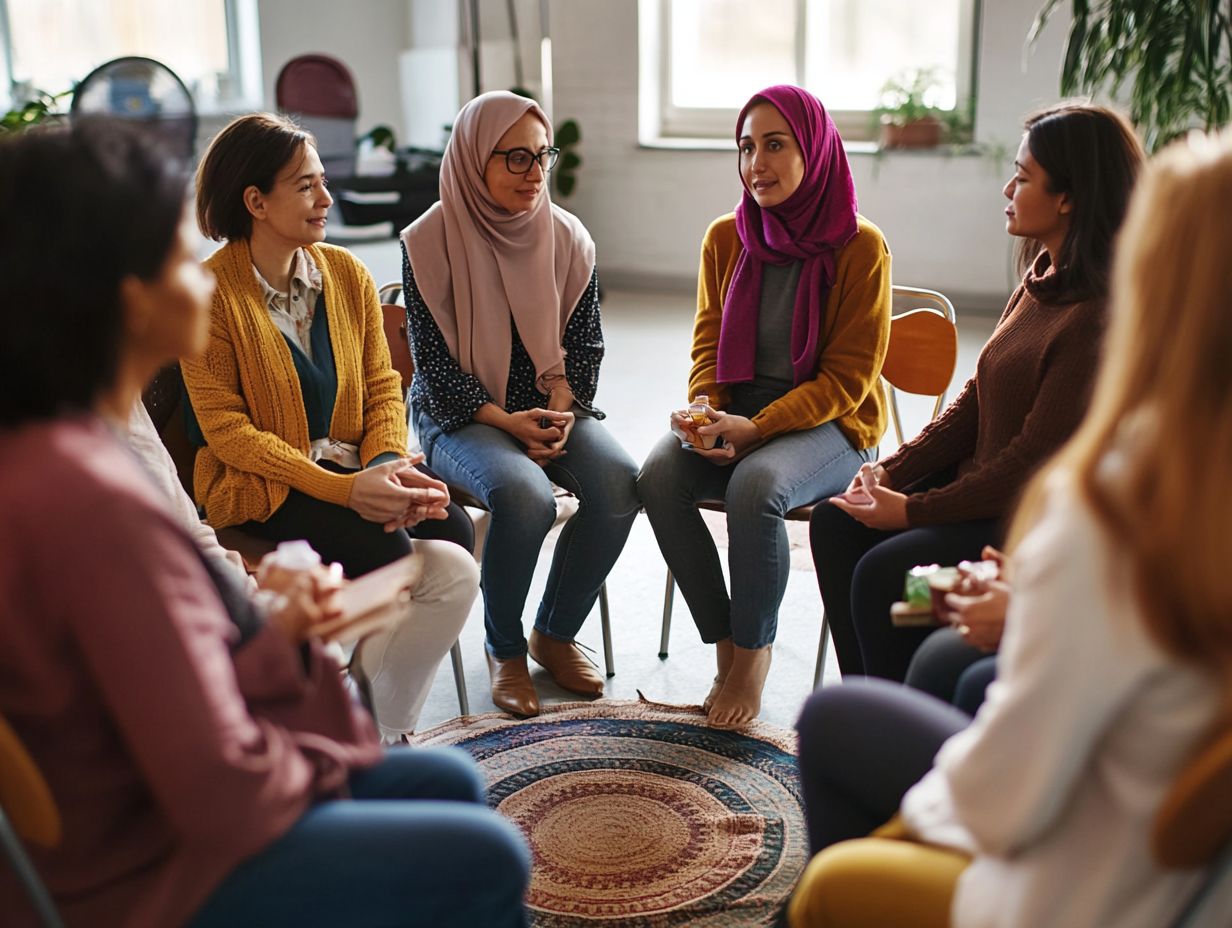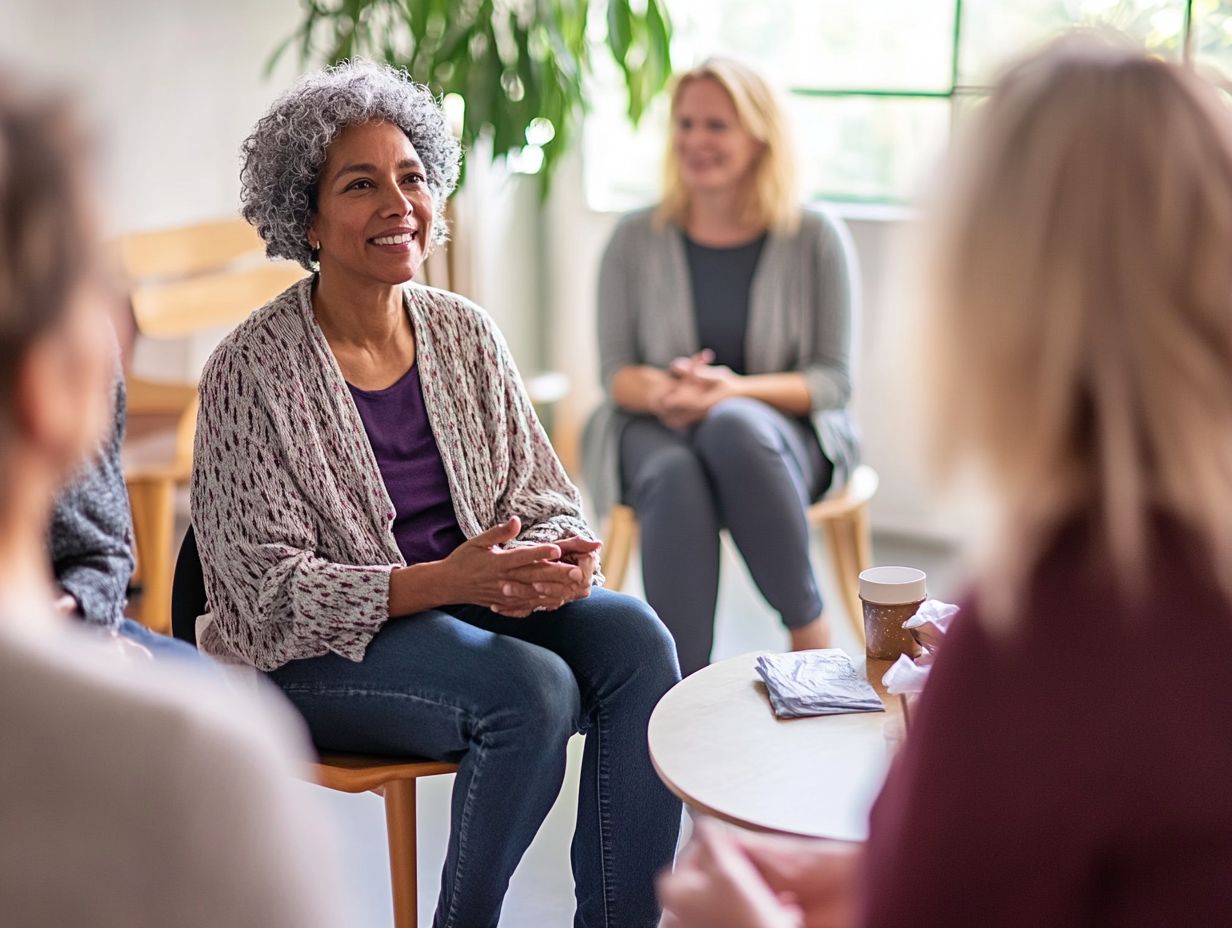Cancer survivors often face significant emotional challenges that can affect their mental health and overall well-being. Understanding the emotional impact of cancer is crucial for providing effective support to survivors as they navigate feelings of fear, anxiety, depression, and loneliness. It is important to incorporate a holistic approach to address their mental and medical health.
Various forms of emotional support, including therapy, counseling, and support groups, play an essential role in helping survivors manage these emotions and understand their triggers. Individual and group therapies offer personalized and community-based support, while family therapy supports collective healing and relationship dynamics.
Support groups and online forums provide platforms for shared experiences and mutual encouragement, accessible through local hospitals, cancer organizations, and digital platforms. Emotional support enhances recovery, reduces isolation, and improves quality of life, empowering cancer survivors with coping strategies, faith, and resilience.
To access these resources, survivors can engage with support groups, online forums, counseling services, and hotlines. Overcoming barriers and stigma is vital for seeking help, which can be facilitated by creating safe spaces, fostering open communication, and utilizing mental health workshops. Engaging the health care team and education can empower survivors to seek the help they need.
Key Takeaways:
Understanding the Emotional Impact of Cancer

The emotional impact of cancer affects patients and families, causing fear, anxiety, sadness, loneliness, and isolation during treatment. Coping with these emotions is essential for both patients and families.
Understanding these emotions helps improve cancer care by supporting coping strategies and fostering hope. Integrating psychological techniques can greatly enhance the care provided to survivors.
Common Emotional Challenges for Cancer Survivors
Cancer survivors face emotional challenges such as depression, anxiety, loneliness, and fear of recurrence. These feelings can often lead to a sense of guilt and the need for lifestyle changes.
Emotional challenges can impact daily life and relationships.
Support groups, counseling, and community engagement help cancer survivors manage emotions and rebuild connections.
Types of Emotional Support for Cancer Survivors
Emotional support for cancer survivors includes therapy, counseling, and support groups. Mayo Clinic offers resources that can guide survivors through their emotional journey.
Therapy provides a private space to address feelings and develop coping strategies.
Counseling offers guidance on managing emotional health and stress.
Support groups connect survivors with peers for shared experiences and mutual encouragement.
Therapy and Counseling Options
Therapy and counseling options for cancer survivors include:
- Individual therapy provides personalized emotional support in a confidential setting.
- Group therapy offers shared experiences and coping strategies within a supportive community.
- Family therapy addresses relationship dynamics to support collective healing.
Support Groups and Communities

Support groups and communities provide emotional support for cancer survivors by offering a space to share experiences with others facing similar challenges.
These groups allow individuals to express feelings, fears, and grief, exchange coping strategies, and form lasting friendships. Engaging in such communities can help rebuild a sense of normalcy and joy in life.
Support groups are available through local hospitals and online platforms, providing easy access to those in need.
Finding Emotional Support Resources
Finding emotional support resources is vital for cancer survivors to enhance recovery and well-being. Key resources include:
- Support groups: Facilitated by hospitals or cancer organizations, offering peer support.
- Online forums: Websites like CancerCare and Cancer Support Community provide virtual support.
- Counseling services: Licensed therapists specializing in cancer recovery.
- Hotlines: Immediate emotional support via phone, such as the American Cancer Society’s hotline.
These resources help cancer survivors navigate emotional challenges, manage symptoms, and improve their overall quality of life. Seeking guidance from professionals like the American Cancer Society can also be beneficial.
Online and In-Person Resources
Online and in-person resources for cancer survivors include virtual workshops, local counseling services, and peer support groups.
Online resources feature webinars on platforms like Facebook or Discord, offering forums for discussion.
In-person resources include community center workshops and specialized oncology counseling services.
Cancer survivors can choose between anonymous online meetings or face-to-face community events for emotional support.
Benefits of Emotional Support for Cancer Survivors
Emotional support benefits cancer survivors by improving mental health, enhancing recovery, and providing coping strategies.
Emotional support helps reduce feelings of isolation, increases resilience, and fosters a sense of community among survivors.
Cancer survivors receiving emotional support often experience better quality of life and improved long-term wellness.
Improved Mental Health and Coping Strategies

Improved mental health in cancer survivors results from effective coping strategies and emotional support. Research indicates that maintaining hope and a positive outlook can significantly impact recovery and wellness.
Coping strategies include mindfulness practices like meditation and deep-breathing, which reduce stress.
Regular physical activity enhances physical and mental health by boosting strength, providing control, and integrating exercise into daily routine.
Support groups reduce isolation by promoting shared experiences and discussions among survivors.
These strategies give the power to cancer survivors to build resilience during recovery. Incorporating techniques such as mindfulness and faith can further strengthen their emotional fortitude.
Tips for Seeking Emotional Support
Tips for seeking emotional support include:
- Identify Trusted Individuals: Reach out to friends or family who offer a safe space for sharing feelings.
- Join Support Groups: Participate in community or online support groups related to your experiences.
- Consult Professionals: Seek help from therapists or counselors specializing in mental health.
- Practice Open Communication: Clearly express your needs and feelings to those offering support.
- Utilize Helplines: Contact helplines for immediate support when needed.
How to Overcome Barriers and Stigma
Overcoming barriers and stigma is crucial for cancer survivors to access emotional support.
Barriers include feelings of isolation and fear of judgment, which lead to internalized stigma that prevents seeking help.
To overcome these, create safe spaces through community support groups, initiate open conversations, and offer mental health workshops.
These strategies help cancer survivors feel comfortable seeking emotional support necessary for recovery.
Frequently Asked Questions
How Can I Access Emotional Support for Cancer Survivors?

There are several ways to access emotional support for cancer survivors, including talking to a therapist, joining a support group, seeking advice from a counselor, or reaching out to friends and family members for support. Engaging with medical professionals can also provide essential insights and information.
What are some resources for emotional support for cancer survivors?
Some resources for emotional support for cancer survivors include support groups offered by hospitals or cancer treatment centers, online support communities, and counseling services provided by cancer organizations.
How can a therapist help me cope with the emotional impact of cancer?
A therapist can provide a safe and non-judgmental space for you to process your emotions, offer coping strategies for managing anxiety, depression, and sadness, and help you develop a positive outlook on life after cancer. Therapy can also involve discussing lifestyle changes to maintain a healthy routine.
Are there specific support options for young adult cancer survivors?
Yes, there are support groups and organizations specifically geared towards young adults who have survived cancer. These groups offer a sense of community and understanding for the unique challenges faced by young adult survivors.
Is it normal to have emotional struggles after surviving cancer?
Yes, it is completely normal to experience a range of emotions after surviving cancer. It can be overwhelming and confusing to navigate life after such a significant health event, and seeking emotional support can be helpful in managing these challenges. Understanding that change is a part of recovery can also provide clarity and help.
How can I support a loved one who is a cancer survivor?
One of the best ways to support a loved one who is a cancer survivor is by being a good listener and offering a non-judgmental space for them to express their feelings. You can also encourage them to seek professional support if needed and offer practical help, such as driving them to appointments or cooking them a meal.





